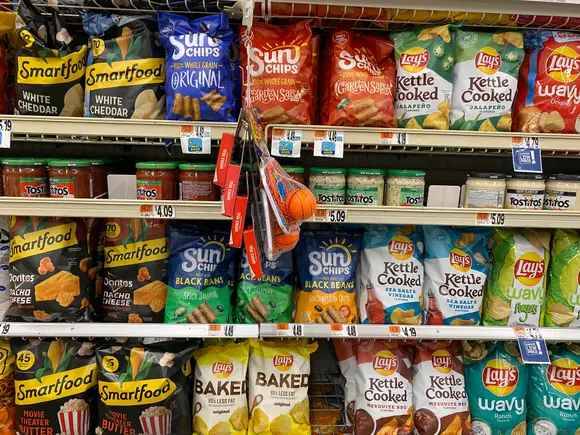The snacking industry, once considered recession-proof, is now facing challenges as consumers tighten their belts and prioritize essential purchases over indulgent snacks. Major food companies like PepsiCo, Mondelēz International, and The Campbell’s Company have reported a slowdown in snack sales due to inflation and economic uncertainty.
Mondelēz’s CEO, Dirk Van de Put, highlighted a shift in consumer behavior towards purchasing more grocery staples like meats, vegetables, and eggs, leading to a decline in snack sales. In North America, Mondelēz saw a 4.1% drop in net revenues during its recent quarter, reflecting the impact of changing consumer preferences.
Executives in the snacking industry are painting a bleak outlook, with little optimism for improvement in the near future. Both Mondelēz and PepsiCo have expressed concerns about consumer confidence and sentiment, noting a decline in demand for snacks and beverages.
PepsiCo, in particular, has seen challenges in its snack business, with organic revenue in its North American foods segment slipping by 2%. The company’s Frito-Lay business, which includes popular brands like Doritos and Cheetos, experienced a subdued performance.
As snack makers navigate these challenges, they are exploring strategies to address consumer concerns about affordability. Companies like Mondelēz and PepsiCo are introducing more affordable options, such as smaller single-serve items and multi-pack options under $4 and $2, respectively, to drive sales and maintain consumer loyalty.
Despite the overall softness in the snacking category, some segments are performing better than others. Mondelēz’s biscuit business, which includes brands like Oreo, Ritz, Triscuit, and Chips Ahoy!, is holding up relatively well compared to other snack categories, according to Van de Put.
In conclusion, the snacking industry is facing headwinds as consumer spending shifts towards essentials, impacting sales for major food companies. With ongoing economic uncertainty and inflationary pressures, snack makers are adapting their strategies to navigate these challenging times and maintain consumer interest in their products.


